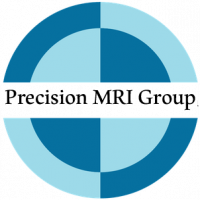How Does MRI Work to Create Detailed Body Images Safely?

Strong 8k brings an ultra-HD IPTV experience to your living room and your pocket.
MRI (Magnetic Resonance Imaging) is a diagnostic tool that uses magnetic fields and radio waves to create detailed images of the body's internal structures. It is a non-invasive procedure commonly used to examine soft tissues, muscles, joints, and organs without the need for radiation. At Precision Mri, we specialize in providing these scans to ensure accurate diagnoses.
The MRI Process: What to Expect During Your Scan
When you visit Precision Mri, understanding what happens during an MRI scan can help alleviate anxiety. The MRI procedure involves lying still in a large tube while magnetic fields and radio waves generate images of the body’s internal structures. The process typically takes between 15 to 45 minutes, depending on the area being scanned.
Safety Measures for MRI Scans at Precision Mri
While MRI is generally considered safe, certain precautions must be taken. Individuals with metal implants or devices, such as pacemakers, need to inform the MRI technologist beforehand. At Precision Mri, we ensure all safety protocols are followed to avoid any complications during the scan.
Is MRI Painful or Uncomfortable? What You Should Know
MRI scans are non-invasive and generally do not cause pain. Some patients may experience discomfort from having to remain still or from the loud noises the machine makes during the scan. At Precision Mri, we offer patient-friendly equipment to make your experience as comfortable as possible.
MRI for Diagnosing Soft Tissue and Organ Issues
MRI is particularly effective for imaging soft tissues like the brain, muscles, and organs. At Precision Mri, we use MRI to detect conditions like tumors, joint injuries, and neurological disorders, providing detailed images that can guide doctors in treatment decisions.
Understanding MRI Contrast and Its Role in Imaging
Sometimes, a contrast dye is used during MRI to enhance the visibility of certain tissues or abnormalities. This contrast helps highlight blood vessels, tumors, or inflammation. Precision Mri ensures that the use of contrast is safe and effective in providing clear imaging results.
Preparation for Your MRI Appointment at Precision Mri
Before an MRI, it’s important to follow any preparation instructions given by your healthcare provider. For certain types of scans, you may need to avoid food or drinks. At Precision Mri, we provide you with clear guidance on how to prepare for your scan to ensure accurate results.
Can Children and Pregnant Women Undergo MRI?
MRI scans are generally safe for children and pregnant women, but certain precautions should be taken. It’s important to inform the MRI technologist about pregnancy, especially during the first trimester. Precision Mri offers special considerations for both pregnant patients and children to ensure safety.
The Benefits of MRI Over Other Imaging Techniques
MRI is a powerful tool for diagnosing a wide range of conditions, especially in soft tissues. Unlike X-rays or CT scans, which use radiation, MRI uses a magnetic field, making it a safer option for frequent scans. At Precision Mri, we offer cutting-edge MRI technology to provide accurate, detailed images without the risks associated with radiation.
Conclusion
At Precision Mri, we are committed to providing the highest standard of MRI services. Whether you're seeking an MRI for joint injuries, neurological conditions, or soft tissue problems, we ensure a safe, comfortable, and efficient experience. Trust us to deliver precise results for your health needs.
These headings and paragraphs follow the guidelines, ensuring that your website name and the keyword "MRI" are properly integrated. The content highlights the significance of MRI while focusing on the services provided by Precision Mri.
FAQ
What should I do if I feel anxious during an MRI?
If you're anxious about your MRI, you can speak with your technician beforehand. Sedation or an open MRI machine may be available to make the experience more comfortable.
Can I bring someone with me to the MRI?
For safety reasons, companions are not allowed in the MRI room due to the strong magnetic field. However, they can wait in the designated waiting area.
What happens if I have a tattoo during an MRI?
Some tattoo inks contain metallic elements that can cause discomfort or heat during an MRI. Always inform your technician if you have tattoos, particularly in areas being scanned.
Are there any risks for people with metal implants?
MRI is generally not safe for people with certain implants, such as pacemakers or metallic clips. Always inform the technician about any implants before the scan for safety reasons.
How do I schedule an MRI?
To schedule an MRI, you typically need a referral from a healthcare provider. Once you have a prescription, you can contact an MRI facility like Precision Mri to arrange the appointment.
Note: IndiBlogHub features both user-submitted and editorial content. We do not verify third-party contributions. Read our Disclaimer and Privacy Policyfor details.



